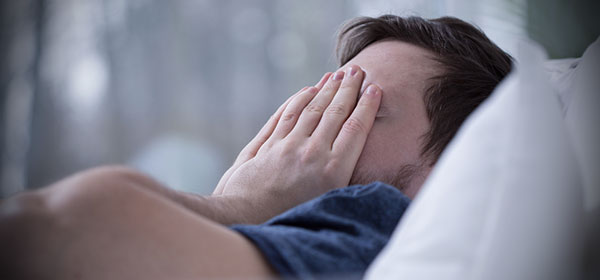If you have ever had a night of tossing and turning while you struggle to get to sleep, you understand the importance of getting some decent shut-eye. While being grumpy the next day quickly passes once you bank more sleep, for others, sleep deprivation can be a serious issue that lasts much longer.
If you fail to get between seven and nine hours sleep a night, you are risking some serious long-term health effects. It drains your mental abilities and can also have physical consequences.
Sleep allows your body to restore its chemical balance, and if this doesn’t happen your brain and body systems won’t function normally. It can also lower your quality of life and shorten your lifespan.
Immune system
While sleeping, your body produces infection-fighting substances that target bacteria and viruses. These substances, called cytokines, also help you to sleep and give your immune system more energy to battle illness. If you are not getting enough sleep, you are leaving yourself more vulnerable to illnesses, infection and disease. Long-term sleep deprivation also increases your exposure to diabetes and heart disease.
Heart health
Sleep is crucial to keeping your heart and blood vessels healthy. It’s not completely clear why less sleep is detrimental to heart health, but researchers understand that sleeping too little causes disruptions in underlying health conditions and biological processes like glucose metabolism, blood pressure, and inflammation. One study that examined data from 3000 adults over the age of 45 found that those who slept fewer than six hours a night were about twice as likely to have a stroke or heart attack as people who slept six to eight hours.
Faster ageing
Just a few nights of poor sleep can cause puffy eyes and sallow skin, but when you have a serious sleep problem your skin can feel the effects. When you don’t get enough sleep, your body releases more of the stress hormone cortisol. Cortisol can break down skin collagen, the protein that keeps skin smooth and elastic. Sleep loss also causes the body to release too little human growth hormone (HGH). As we age, HGH helps increase muscle mass, thicken skin, and strengthen bones.
Weight gain
The hormones that control feelings of hunger and fullness are affected by how much sleep you have, making lack of sleep a risk factor for obesity. The hormone Leptin tells your brain when you have had enough to eat, while the hormone ghrelin is an appetite stimulant. Without enough sleep, your brain reduces leptin and raises ghrelin, contributing to weight gain. According to a 2004 study, people who sleep less than six hours a day were almost 30 per cent more likely to become obese than those who slept seven to nine hours. Not only does sleep loss appear to stimulate appetite. It also stimulates cravings for high-fat, high-carbohydrate foods.
You can read more on the effects of sleep deprivation at WebMD.
Do you think you are getting enough sleep? What tips do you have for beating insomnia?
Related articles:
Insomnia linked to heart failure
Sex-drive supplements for women
Are you not getting enough sleep?

